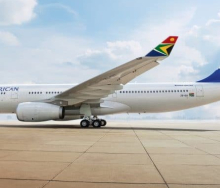Africa’s travel and tourism sector could create 18m new jobs in the next 10 years, revealed speakers at the WTTC Global Summit 2023 in Kigali, Rwanda. However, this growth hinges on three packaged policies that focus on improving Africa’s air infrastructure, visa facilitation, and tourism marketing.
According to Unlocking Opportunities for Travel & Tourism Growth in Africa, a report produced by WTTC in collaboration with VFS Global, by prioritising these policies, the continent can achieve an annual growth of 6,5% that will contribute more than US$350bn (R6,44trn) to the regional economy. The report estimates that the sector currently employs 25 million people, equating to 5,6% of all the jobs in Africa.
In 2019, Africa welcomed 84m international travellers and contributed more than US$186bn (R3,42trn) to the continent’s economy. With the creation of nearly 1,8m jobs, WTTC reported that 2023 is projected to be a year of near-recovery for the sector – only 1,9% shy of 2019 levels.
“Africa’s travel and tourism sector has witnessed an extraordinary transformation. It has already more than doubled since 2000 and, with the right policies, could unlock an additional US$168 bn (R3,09trn) in the next decade,” said Julia Simpson, WTTC President and CEO.
In line with the policies, Simpson recommended that the continent focuses on simplified visa processes, better air connectivity and marketing campaigns to highlight the wealth of the destinations in the continent.
“This report not only highlights the diverse prospects for economic growth, sustainable tourism, and cross-cultural collaboration, but also provides valuable insights for governments to formulate policies and offer businesses a well-defined roadmap for expansion in this thriving market,” said Zubin Karkaria, Founder & CEO of VFS Global.
Environmental Impact Research
WTTC also highlighted the importance of the sector’s sustainability as Simpson revealed the results of research conducted with the Ministry of Tourism of Saudi Arabia’s Sustainable Tourism Global Centre.
According to Simpson, travel and tourism accounted for 8.1% of greenhouse gas emissions in 2019, 10.6% of total global energy, and 0.9% of freshwater use.
The research, which covers 185 countries across the world, unveiled key insights, including:
• The travel and tourism sector demonstrates an impressive trend of decoupling its environmental footprint from its GDP growth.
• Notable achievements include reductions in the intensity of water usage, greenhouse gas emissions, energy consumption, and material extraction.
• Travel and tourism accounts for 5-8% of global material extraction.
• Monitoring extends to pollutants such as particulate matter, carbon monoxide, ammonia, and nitrogen oxides, among others.















